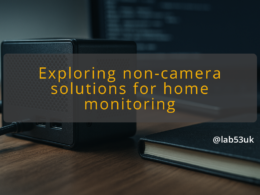Introduction
The role of social media in politics has been a hot topic for quite some time now. With the 2024 UK General Election behind us, it’s worth taking a close look at how social media was used by political parties during the campaign. Social media isn’t just a platform for sharing memes or holiday snaps; it has become a critical part of political strategy, influencing voter engagement and information dissemination.
For anyone interested in the mechanics of political campaigning, understanding how these platforms were leveraged is pivotal, especially given the increasing reliance on them in contemporary elections. The performance of each party on various platforms can give us clues about voter preferences and the future of political communication in the UK.
Parties and Platforms
Legacy Platforms Remain Dominant
The 2024 General Election saw political parties primarily turning to established social networks, particularly X (formerly Twitter) and Facebook. Analysis from the campaign period indicates that these platforms still hold sway despite the allure of newer channels like TikTok.
During the campaign, all major parties—Labour, Conservative, Lib Dem, Reform, Green, and SNP—were particularly active on X. Labour and SNP were the frontrunners, each racking up nearly 1000 posts. This highlights a continued preference for channels where rapid engagement and post visibility can be maximised.
Changing Dynamics on Social Media
Interestingly, the frequency of posts across platforms like Facebook and Instagram showed a significant decline compared to previous elections. For instance, there was a reported 42% drop in posting on Facebook and a 24% decrease on Instagram. This suggests that the impact of social media might be diminishing in its conventional form, leading one to wonder if traditional campaigning tactics are regaining their footing.
Audience Engagement Trends
Targeting Different Demographics
While platforms like TikTok are gaining popularity, particularly among younger voters, the major parties still leaned heavily on older platforms to engage their audiences. The SNP, for instance, led activities not just on X but also on Facebook and Instagram. In contrast, Labour found its niche on YouTube, while the Lib Dems took advantage of TikTok.
This indicates a strategic alignment with user demographics—parties seem to understand where their potential voters are spending their time, even if engagement levels continue to evolve.
The Importance of Critical Consumption
Understanding Misinformation
As Dr. Maggie Macdonald from the University of Kentucky points out, social media often rewards negative messaging and partisanship, drawing attention that overshadows substantive policy discussions. Political parties appear to capitalise on this by focusing on their media presence instead of engaging deeply with policy debates.
This reliance on sensationalism raises concerns about misinformation, particularly as the Oxford report outlines the growing prevalence of disinformation campaigns across social media. The challenge for voters and consumers of political content is to navigate this fragmented landscape critically.
The Evolution of Information Consumption
Media Preferences Among Voters
According to YouGov data, media consumption habits vary significantly among different voting groups. For example, Conservative voters tend to favour traditional media like TV and newspapers, while Green voters gravitate towards social media channels. In fact, among social media users, 60% of those on X and 52% on TikTok reported seeing election-related content, with younger audiences more engaged on platforms like Instagram.
Final Thoughts
The 2024 UK General Election has highlighted the complex relationship between social media and political campaigning. While traditional platforms like X and Facebook remain vital, the declining engagement rates suggest that political parties must adapt their strategies to the changing social media landscape.
Voters need to approach information with a critical eye, particularly in an environment where misinformation is rampant. The next election cycle will likely see an even more pronounced evolution in how social media is used, especially as newer platforms continue to emerge. In a world where everyone is vying for attention, how can parties ensure their messages resonate without getting lost in the noise?




